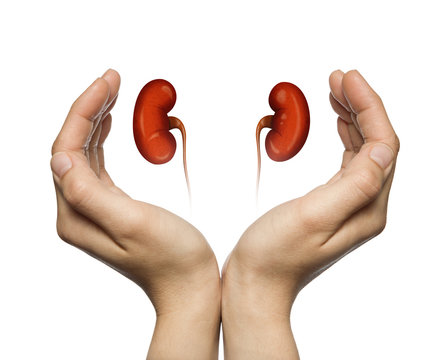Gender disparities in organ donation
The unequal access to transplantation that women experience disproportionately has not been addressed by legislation or allocation policies
Post by RK News on Thursday, March 30, 2023

Dr. VISHAL SAXENA
In our ancient texts and writings, girls and women are placed on a high pedestal. They are worshipped as kanyas (girls), as grihalaxmi (wives), and as mothers. Our Vedic scriptures and hymns glorify the dignity of women. As quoted, where women are honoured, there the deities are pleased.
With a population of more than 1.3 billion people, India is a large and diverse nation. India's population is around 50% female, and women are very important to Indian society. Yet, depending on a variety of elements like social status, location, religion, and caste, being a woman in India might be very different from place to place. In India, awareness of the significance of women's rights and gender equality has grown in recent years. Women have achieved great advancements in fields like politics, healthcare, and education. Women in India still suffer a variety of difficulties, including prejudice, gender-based violence, and unequal access to opportunities and resources. A clear example of one such disparity is found in the field of access to organ transplantation.
The only treatment that can save the lives of patients with end-organ failure is transplantation. Access to this therapeutic option has always been restricted by the lack of available organs; hence, much research has been done on how to fairly allocate this priceless national resources; hence, much research has been done on how to fairly allocate this priceless national resource. Regrettably, gender and sex-based inequities exist and have done so for many years despite the transplant community's knowledge of this injustice.
Crucially, the unequal access to transplantation that women experience disproportionately has not been addressed by legislation or allocation policies. In addition, although they make up the majority of living kidney donors, women with renal disease are continuously less likely to be referred for transplant evaluation and subsequently less likely to receive a kidney transplant. According to a survey, all sexes had comparable reasons for donating organs, although women were noticeably more likely than men to do it for a relative.
Men and women may not have the same intentions when it comes to organ donation, so it is important to clarify these intentions with close family members. Among the pool of live and deceased organ donors, there are still gender differences. Women make up the majority of living organ donors (60%) but make up less than half of deceased organ donors (40%) as well. These gender disparities in organ donation have persisted for more than 25 years, and the incidence of donation refusal may have an impact. According to a 2013 study, 11.1% of family members who were considering refusing to donate a recently deceased person's organs actually did so.
The majority of family members that refused donation for cadaveric donation were women. This is problematic because sex disparities in organ donation contribute to sex mismatch in transplant recipients, which is associated with worse outcomes among transplant recipients. Women represent more than 40% of the candidates awaiting the many organs available through deceased organ donation. Thus, achieving an equitable gender distribution in the deceased donor pool is a priority.
Understanding the reasons behind organ donor registration can contribute to strategies to diversify the donor pool. A 2014 study suggested that organ donors registered. Ethical Principles in the Allocation of Human Organs from the OPTN include “respect for persons,” where programs must respect the decisions of potential donors and those that do not consent to donate, and transparency must be maintained throughout the process. In addition, international consensus was convened under the World Health Organization, which details “Guiding Principles on Human Organ Transplantation” that also share the necessity of consent to proceed with organ procurement.
Improved public dissemination of these ethical policies may restore trust in the medical system. Implementation studies led by patient stakeholders may be an appropriate next step toward achieving equity in donor registration by sex.(Erika Yee et al). A total of 557 kidney transplants were analyzed, with women having 78.5% higher incidence of donation (P < .001). Among them, parents (72.20% mothers), spouses (87.20% wives), siblings (47.50% sisters), and children (44.44% daughters) were the major participants. In India, the data from National Organ & Tissue Transplant Organization (NOTTO) for 2019 reveal that there were 12625 total organ transplants out of which 72.4% recipients were men. Among the living organ recipients in the previous year 70.6% were men. In a study done in Gujarat at IKDRC among couples, 90% donors were female-the ratio was 78% for grandparents donors and 75% for parents. It has been a socio-economic issue that has continued for the past several decades.
In India, I feel there is a great need to create a gender neutral society. Although the goal is far away but our persistent efforts in increasing awareness regarding living or deceased organ donation, creating a gender neutral status will be rewarding and will increase our donor pool. Also we need to emphasize the concept of age matched, gender matched donation as the best for the organ recipient and transplant outcomes. A society only gets respect where all individuals are treated as equal although I might sound eutopian but a small step by each of us including government & law makers along with public participation might help achieve a respectful place for all citizens.
(The Author is Director Nephrology & Kidney Transplant - BLK MAX Superspeciality hospital, New Delhi)